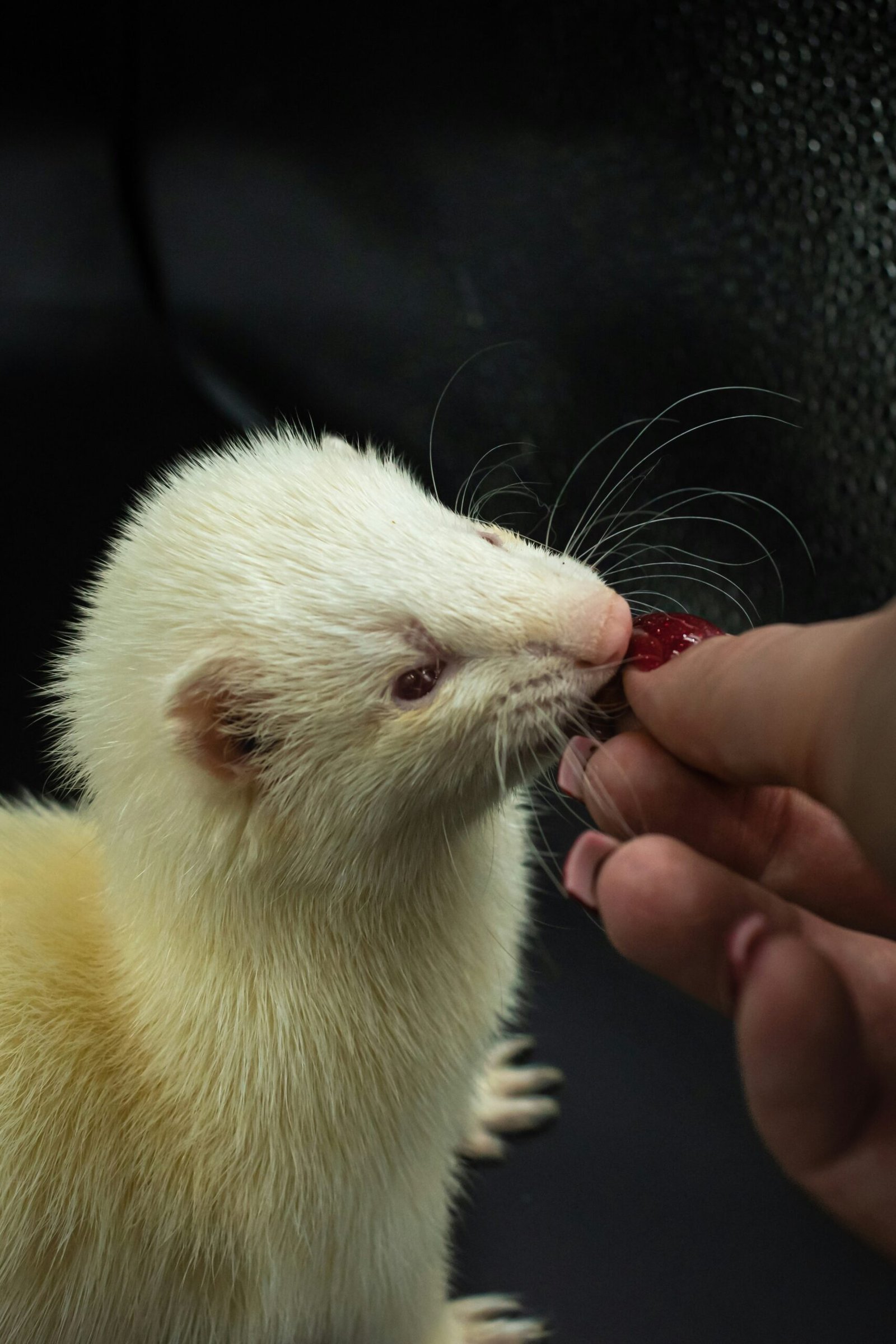If you’ve recently welcomed a fuzzy little ferret into your life, congratulations! Ferrets are curious, playful, and full of energy. But like all pets, they come with their own set of needs. Many new owners fall into common traps that can lead to frustration—or worse, health issues for their ferret. But don’t worry—you’re in the right place to learn!
💡 Why This Guide Matters
In this beginner-friendly ferret care guide, you’ll discover the 7 most common mistakes new ferret owners make, why they matter, and how to fix or avoid them altogether. With SEO-backed advice focused on ferret care tips, ferret health, and safe home environments, you’ll feel more confident providing the best life for your new furry friend.
1. Feeding the Wrong Diet
Mistake: Feeding ferrets fruits, vegetables, or low-protein kibble.
Ferrets are obligate carnivores. They need a high-protein, high-fat diet with minimal carbs. Many new owners mistakenly give them cat food or sugary treats, which can lead to insulinoma or other health issues.
👉 Best Practice: Look for ferret-specific food with at least 36% animal protein and 20% fat. Freeze-dried raw meat or high-quality kitten food (as a backup) can work in a pinch.
2. Not Ferret-Proofing the Home
Mistake: Letting ferrets roam freely without making the space safe.
Ferrets are sneaky and love to squeeze into tight places—like under stoves or into furniture. Many accidents and injuries happen due to a lack of ferret-proofing.
👉 Best Practice: Block off small spaces, secure wires, and store away anything chewable or toxic. Use baby gates or playpens to create safe zones.
3. Keeping Them Caged All Day
Mistake: Leaving ferrets in cages for most of the day.
Ferrets are highly active and need at least 4 hours of out-of-cage playtime daily. Being confined too long can lead to depression, obesity, and behavior problems.
👉 Best Practice: Let your ferret explore safely every day. Rotate toys, offer tunnels, and supervise playtime in a secure area.
4. Skipping Vet Visits
Mistake: Not taking ferrets to the vet unless they’re sick.
Ferrets need annual checkups and vaccinations (like distemper). Early detection of illnesses such as adrenal disease or insulinoma can save lives.
👉 Best Practice: Find an exotics or ferret-savvy vet early and stick to a regular check-up schedule.
5. Underestimating Their Need for Socialization
Mistake: Thinking ferrets are low-interaction pets.
Ferrets crave attention, affection, and stimulation. Without enough interaction, they can become bored and destructive.
👉 Best Practice: Spend quality time daily. Consider getting a second ferret for companionship (after proper introductions).
6. Using Inappropriate Litter or Bedding
Mistake: Using clay-based cat litter or scented bedding.
Certain materials can cause respiratory issues or be ingested by curious ferrets.
👉 Best Practice: Use paper-based or wood-pellet litter. For bedding, opt for soft fleece or hammocks specifically designed for ferrets.
7. Ignoring Ferret Odor Instead of Managing It Properly
Mistake: Over-bathing ferrets or assuming they’re “dirty.”
Ferrets naturally have a musky scent. Bathing too often increases oil production, making the smell worse.
👉 Best Practice: Clean bedding weekly, maintain a healthy diet, and bathe only once every few months if necessary. Focus on ear cleaning and dental hygiene instead.
Conclusion
Caring for a ferret doesn’t have to be overwhelming. By avoiding these common mistakes and following these ferret care tips, you’ll enjoy a healthier, happier relationship with your pet. Remember, ferrets aren’t just fun—they’re family. Give them the love, space, and attention they deserve, and they’ll reward you with endless cuddles and laughs.
Frequently Asked Questions
1. How long do ferrets live?
Ferrets typically live 6 to 10 years, depending on their genetics, diet, and healthcare.
2. Can I potty train my ferret?
Yes! Ferrets can be litter trained, but consistency is key. Use a corner litter box and reward them with treats.
3. Do ferrets get along with other pets?
It depends. Some ferrets get along with cats or dogs, but introductions should be slow and supervised. Avoid pairing them with small prey animals like rabbits or birds.
4. What toys are safe for ferrets?
Look for hard rubber balls, tunnels, and crinkle toys. Avoid anything with foam or small parts they can chew off and swallow.
5. How often should I clean my ferret’s cage?
Spot clean daily, and deep clean (change bedding, scrub surfaces) weekly to keep it hygienic.
